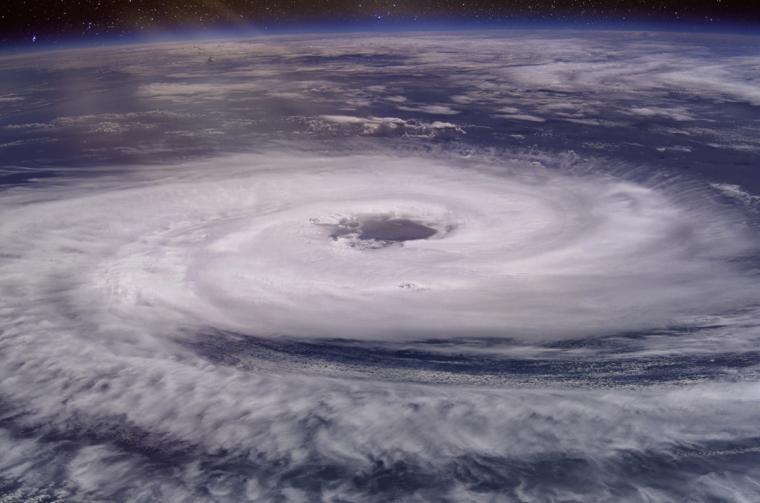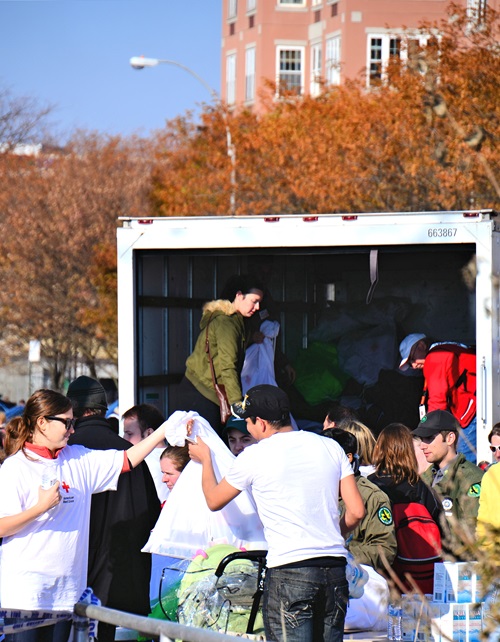
Hurricane: Photo © Elen33 | Dreamstime.com
Hurricane Helene made landfall in Florida, then tore across South Carolina, Georgia, Florida, North Carolina, Virginia and Tennessee, leaving a 500-mile trail of destruction. Now, as widespread power losses continue, individuals are trying to bail out and find a way forward.
Accuweather had the grim news that at least 36 people have been confirmed dead in North Carolina, according to county and state officials and 25 deaths have been reported in South Carolina, including two firefighters, authorities said. At least 17 people have died in Georgia with two killed by a tornado in Alamo, according to a spokesperson for Gov. Brian Kemp. In Florida, at least 11 people have died including several people who drowned in Pinellas County. Four deaths have been reported in Tennessee and two people have died in Virginia, officials said Sunday.
With hundreds of missing-persons reports filed, and enormous areas left to search, it may be some time until the full extent of the death toll is known.
Although some flights are back in the air and some roads have been cleared and reopened, economic development has taken a back seat for the time being, a situation likely to continue for a while yet. AccuWeather has increased its estimate of the total damage and economic loss from Hurricane Helene to $145 billion to $160 billion.
So of course, the question becomes: How to help. While it is beyond most individuals to visit the area, there are ways to provide assistance. CNN noted the following:

American Red Cross
The Red Cross offers food, shelter, supplies, and emotional support to victims of crisis. It already has hundreds of workers and volunteers in Florida and has opened dozens of shelters for evacuees. You can contribute to the national group's Helene relief efforts.
The Salvation Army
The Salvation Army provides food, drinks, shelter, emotional and spiritual care and other emergency services to survivors and rescue workers. You can donate to Helene efforts online.
United Way
Local United Way organizations are accepting donations to help relief efforts for both short-term and to continue helping residents later. You can find a local chapter on the organization's website.
GoFundMe
Hurricane Relief Fund "was created to provide direct relief to people in need after a hurricane," the fundraising platform said.
World Central Kitchen
When there is a disaster, Chef José Andrés is there with his teams to set up kitchen facilities and start serving thousands of meals to victims and responders. You can help by donating on their website.
There are also many other organizations providing specialty care and assistance:
All Hands and Hearts
This volunteer-based organization works alongside local residents to help by rebuilding schools, homes and other community infrastructure. It has a Helene fund started.
Americares
Americares focuses on medical aid, helping communities recover from disasters with access to medicine and providing personal protective equipment and medical supplies. To help Hurricane Helene victims, Americares has set up a donation page.

Operation Blessing
This group works with emergency management and local churches to bring clean water, food, medicine and more supplies to people with immediate needs in disaster areas. Donate to their Helene fund on their website.
Save the Children
This organization works to get child-focused supplies into the hands of families hardest-hit by the storm including hygiene kits, diapers and baby wipes as well as classroom cleaning kits to schools and assistance in restoring child care and early learning centers. Donate to the Children's Emergency Fund.
Note Regarding Material Donations (Goods and Services): While many wish to directly donate clothing, cans of food, business services and more, disaster relief workers say those efforts are not what is needed at this time. In fact, with flights limited to impacted areas and many roads unpassable, there is no way to ship material donations.
This article about items good-intentioned people donated unnecessarily (stuffed animals, half-used items from medicine cabinets, dilapidated shoes and even formal clothing) reinforces this message.
Instead, people should give money to groups they trust, and that have the ability to provide aid where it's needed most. Monetary donations are always preferable.
Support Honest Charities: Unfortunately, caution is needed when donating to storm-related charities. So-called storm chasers looking to capitalize on the disaster may launch crowdfunding appeals or may even go door to door. The following resources are available:
- Those who see a suspicious campaign can now report it to the BBB Scam Tracker.
- Federal Emergency Management Association (FEMA) has a Disaster Investigations and Inspections Division, with contact information here.
- The U.S. Cyber & Infrastructure Security Agency also has resources related to phishing emails and other electronic communications.
Additionally, the State’s Attorney’s Office in impacted areas are good resources.
Additionally, the State’s Attorney’s Office in impacted areas are good resources.

